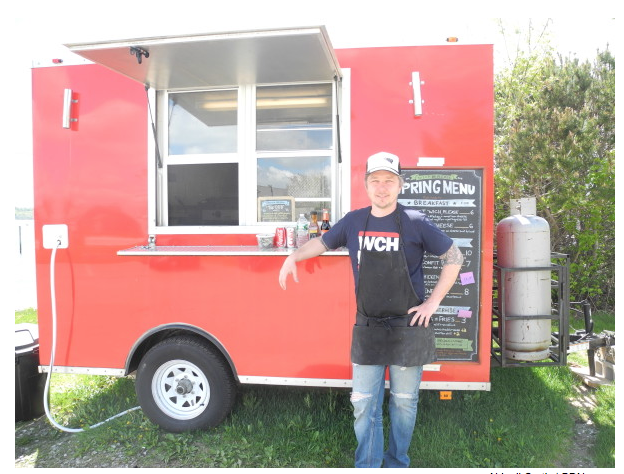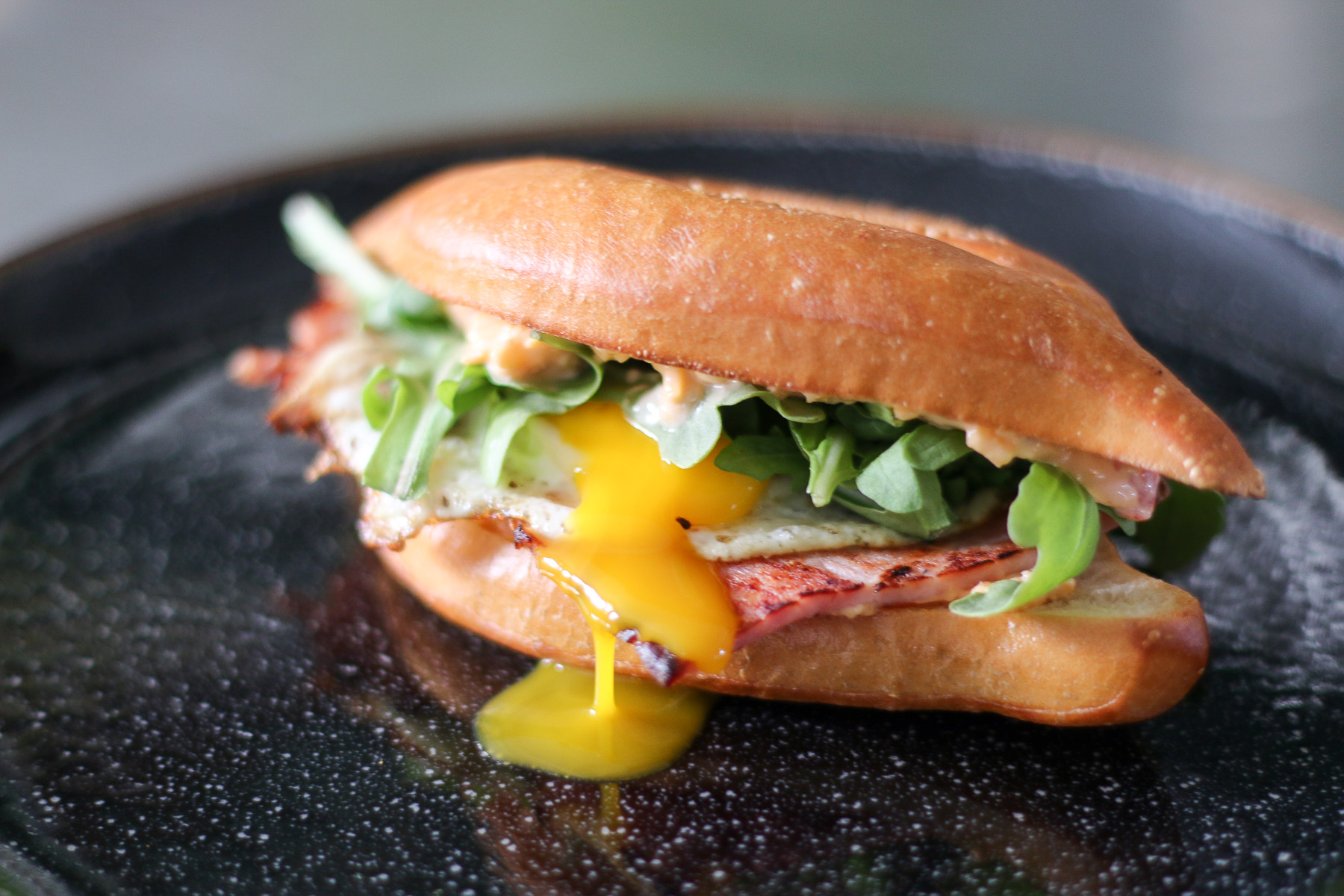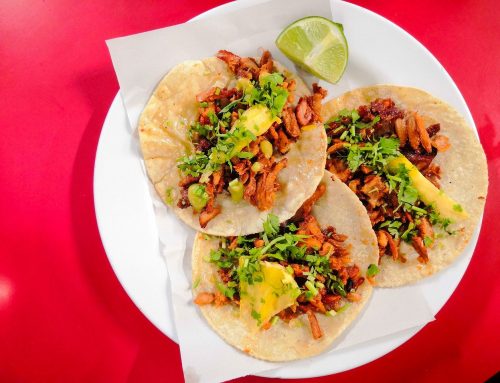Should I start a restaurant with my best friend / wife / parent / person I met on the internet?
As small business entrepreneurs, many of us often find ourselves daydreaming about a partnership with a well-financed, experienced partner. It’s a compelling fantasy; a partner can help share the risk, make the big decisions, and perhaps most importantly, swoop in with a big fat check from time to time, as the needs of the business grow and change. “If only I had a partner,” many of us find ourselves saying, “I could finally open a second location, buy that fancy new piece of equipment, distribute my product in store, or order an extra case of molasses.”
While launching your new business with the help and support of a partner may seem like a dream come true, it’s a relationship that has its own share of pitfalls.
A little bit about me before we get started. I own and operate a restaurant / food truck business. I’m did not start my business with a partner and believe that going solo is the best approach for most restaurateurs. On the other hand, I have seen partners work out well on occasion even though I think the odds are stacked against you.

To bring on a business partner or not? That is the question.
That’s only my opinion of course. Some days I wish I did have a reliable partner to help make decisions or use as a sound board. There are pros and cons to either path you choose so you understand what you’re getting into for better or worse.
But before you risk sharing the success of your concept with a trusted friend, business partner, or investor, here are a few things I think you need to consider before making it official:
Partnering with another person usually means relinquishing control.
Think about this very carefully, and have an honest conversation with yourself about your ability to share control with another person. Most of us dream of starting our own food businesses mostly because we are convinced that if we could execute our ideas exactly the way we wanted to, without a clueless boss offering their two cents every day, success would be all but assured.
This feeling begins at the top of the decision-making process, including topics such as where to buy or rent, the name of the business itself, or which vendors to use, but it trickles down to day-to-day issues that arise, such as whether a dish should come with a baked potato or rice pilaf.
When you partner with another person on your idea, you are usually giving up some degree of autonomy. While sharing in the important decisions may be a comfort for some, it’s also easy to feel like you’ve lost control of your idea. When entering into a partnership with another person, designate very early on who will be responsible for making which kinds of decisions.

The exterior of my restaurant Ancho Honey.
For example, you may decide to make foundational, financial decisions together, while designating one person to make creative or culinary decisions. Ironing out who is responsible for what is a critical part of any new partnership, and will help avoid struggles for power and control down the road.
A partner can be a great backup, as well as a sounding board for your most harebrained ideas.
There are practical reasons to launch a food business with a partner. Sooner or later, a nasty case of bronchitis will keep you out of the kitchen, and what happens then? Who will order the egg noodles and make sure your staff doesn’t tear itself apart? Having a partner who can swoop in and take over when you can’t fulfill your duties is key.
Related Reading: 6 Profitability Secrets Chinese Restaurants Don’t Want You to Know
But partners can be practical for another reason: They can tell you when your idea is dumb. As entrepreneurs, it’s easy to feel like we’re spinning off hundreds of ideas in a vacuum, without any notion of how well they will actually work. A partner gives you a person with more than a casual interest in your business who you can bounce ideas off of, before making the leap into your latest million dollar idea with both feet.
And when you come up with an idea that will really work? Your partner will help you make sure you get it done, providing accountability and the extra push you may need to execute your plan.
A partnership with a loved one has the potential to destroy the relationship.
“You know what we should do,” begins a common conversation at a bar, “We should open our OWN BAR, man.” Starting a business with a good friend or significant other may seem like a dream come true. After all, you know each other well, you trust one another’s judgment, and you’re comfortable spending long hours together, so what could go wrong?
Plenty. In addition to the long, long hours you’ll be spending with your potential partner, sharing equally in the successes and frustrations of your new business, there’s bound to be a major financial component that can strain even the most rock-solid relationships.

Logo and brand decisions must be run by all partners if you have them.
Long hours, uncomfortable conditions, financial concerns, and the day-to-day stresses of running a restaurant can all eventually take their toll on even the closest relationships, and can result in hurt feelings, resentment, a battle for control, or even legal battles. Before you enter into a partnership with a friend, spouse, or romantic partner, recognize that the relationship may not survive the stresses of the business.
Having a partner means sharing the success.
Let’s assume for a minute that everything goes according to plan: You get the doors open, the customers come, they leave you rave reviews. Your numbers are growing month of over month, your food cost is under control, you’re not wasting tons of product and your staff hasn’t mutinied. Congratulations! You’re one of the few success stories in an industry that relentlessly chews up dreams and spits out broken human beings.
But in an industry where even the success stories are operating on such thin margins, even a business that’s successful may not be able to survive a profit split. Remember, with a partner, you have to take whatever small slice of profitability you manage to eke out and divide it up, and for many businesses, that’s not enough to support two or more grown adults (and their kids, and their kids’ orthodontists).
Make sure your skills align and don’t overlap too much.
Choosing a partner means taking an honest inventory of your strengths and skills, as well as your weaknesses, and finding someone who will fill in the gaps in your skill set. For example, two people who are gifted with culinary creativity may be great at brainstorming new dishes together, and while that’s important, it leaves out the financial and management skills that are also critically important for any business.
Ideally, you’ll want to find someone who fills in some of the skills you may lack; a meticulous bookkeeper can complement a creative cook, for example, while a “people person” who can lend identity to front-of-house work may complement a partner who sits in the back office with their nose buried in permits and loan applications.

Skills to pay the bills.
Be clear about who’s going to take responsibility for what.
A good partnership depends on every person in the partnership knowing their role and their responsibility in the business. Mapping out a few “worst case scenarios” ahead of time, and deciding who is going to handle what, helps eliminate confusion when these problems actually arise.
Related Reading: 47 Massively Profitable Concession Stand Menu Ideas
For example, if you come in to prep for the morning and find the walk-in cooler sitting at 60 degrees, who’s going to be responsible for salvaging the inventory and scheduling the repairs?
If your dishwasher suddenly starts spilling hundreds of gallons of soapy water into the kitchen, flooding the basement, who’s going to deal with it? If your bartender has been handing out your top-shelf liquor to his friends, who’s going to set him straight? And even worse, if the restaurant fails and the partnership dissolves, what happens next?
Figure out a plan for dissolving the partnership.
What will happen to your business, if the day comes that you and your partner simply no longer want to be in business together? If one person has invested a small fortune financially, and the other person has invested their heart, soul, and time to the new venture, who really “owns” it?
Figuring out a strategy for dissolving your partnership makes good sense from the very beginning. This can mean assigning “percentages” of ownership, as well as a framework for allowing one partner to “buy out” the percentage stake of the other partner.
Generally, this isn’t something you should navigate on your own; even partnerships that begin with lots of handshakes and claps on the back can turn ugly and unpleasant, without the help of a good small business lawyer.

Epic breakfast sandwich.
Figure out the type of partnership that’s right for you and your partner.
With your potential partner in mind, it’s time to figure out what kind of partnership is right for you. According to Investopedia, here are a few of the most common types:
Co-Owner: A co-owner shares an ownership percentage of your new venture. The exact percentage (as well as specific rights and responsibilities) will be designated in your partnership agreement.
General/Managing Partner: Similar to co-owner, a general partner is an owner of your restaurant, but they generally have equal authority to act on behalf of the entire business, so if there’s a lawsuit or the business fails, they could be liable to pay or liquidate their assets.
Limited Partner: A limited partner is someone who owns part of the business but doesn’t take part in the day-to-day managing of the restaurant. Most of the time, this means that there will be a limit to their liability, and they won’t have to risk their personal assets.
Silent Partner: A silent partner gives money to the business, but has no role in day-to-day operations.
Investor: Like a silent partner, an investor gives money to the business in the early stages, with the understanding that at some point, they will see a return on that investment. They usually do not have a day-to-day role in operations or decision making.
At the end of the day there’s no right choice for everyone when it comes to the decision to bring on a partner. But before diving into the deep end with a partner take a time out for these consider these pros and cons.
In the process of starting a restaurant? Check out the 8 Specific Ways I Saved Money Opening my Restaurant to see how you can cut costs.




